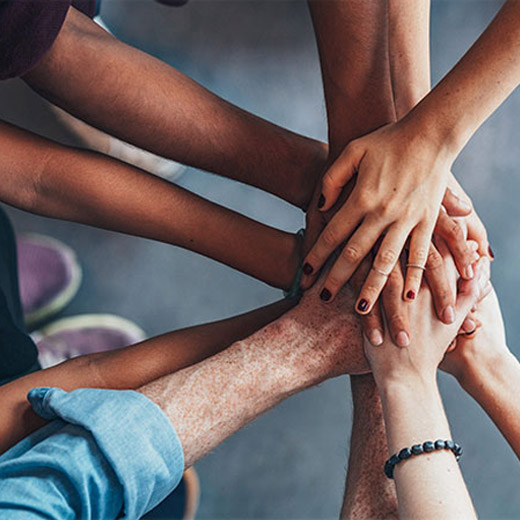When you or someone you care about has an alcohol or drug addiction you may feel hopeless and struggle to know how to address it. You can treat addiction even though it is a disease, and long term recovery is likely through professional rehab intervention programs.
We will detail how a sober future is achievable for you or a loved one if an integrated treatment method is adopted.
What is Addiction Rehab (Rehabilitation)?
Addiction ‘rehab’ is a broad term that includes the therapeutic and medical treatments that are used to help individuals recover from their dependencies on illegal drugs or prescribed medications. Rehab treatment is best when it is tailored to your own needs and incorporates a medically-managed detox, residential and outpatient services, as well as aftercare support.

Facts & Statistics about Addiction in South San Francisco
Prevalence of Substance Use Disorder, by Drug Type
(IN THOUSANDS)
- 2,7578.5%Any Substance
- 2,0886.4%Alcohol
- 1,0683.3%Ilicit Drugs
- 2060.6%Pain Medication
Drug- and Alcohol-Induced Deaths by Age Group, California, 2016
- Alcohol-Induced
- Drug-Induced
- 18 to 250.5
- 9.6
- 26 to 354.3
- 13.9
- 36 to 6424.2
- 22.9
- 65+23.7
- 9.4
Drug Use, by Selected Type and Age Group California, 2015 to 2016
- 12 to 17
- 18 to 25
- 26+
- Marijuana*13.2%
- 34.0%
- 13.5%
- Misuse of Pain Medications3.5%
- 8.0%
- 4.3%
- Cocaine0.8%
- 7.2%
- 1.8%
- Heroin0%
- 0.4%
- 0.2%
What are the treatment options available in South San Francisco?
Identifying and healing the latent causes behind your substance or alcohol use disorder can be achieved through the use of an integrated treatment program. While treating the symptoms of dependence is important, you also must learn coping skills to address the issues that lead to your drug addiction or alcohol addiction.

Private Residential Programs
A residential treatment program requires you to live at the rehab facility and receive all addiction treatment within the property. One of the main benefits is access to 24-hour treatment and care.
There is enormous value in removing yourself from the home environment and becoming fully engaged in the rehab program, because you are not sensitive to the triggering environments that may have caused you to use drugs. By choosing to stay in a secure and supportive environment, you have a greater chance of successfully completing your treatment program while reducing the chance of relapse and its potential dangers.
If you have co-occurring illnesses, dual diagnosis or an intense dependency, an inpatient program is ideally suited to meet your recovery needs. You can begin the initial steps to recovery by taking part in a residential program, but to overcome the challenges of the early stages of addiction recovery, you need to work at it constantly. On completion of your inpatient addiction treatment program, you must transition towards more independence as you consider your goals for your new substance-free life.
Do You Need Help?
We can help you recover.

Sober Living Programs
Sober living treatment programs are designed to help you to have more stability in your life, through guidance and supportive structures. Sober living programs incorporate:
- Regular check-ins from the house manager
- Developing guidelines to change your behavior in recovery
- Helping you to build important relationships with peers who have similar challenges to you
Outpatient Programs
Outpatient programs offer greater flexibility because you can attend work commitments and remain at home, but you visit the rehab facility for your treatments.
Outpatient programs are known for:
- Education around substance abuse
- Counseling and therapy with the use of group settings or one-to-one sessions – The minimum duration of an outpatient program is three months and continue for longer than a year, this will change based on your own needs.
Detox Only Programs
A detox program is the first step in rehab and is performed to address your physical dependence on a substance by removing it from your body. Withdrawal symptoms are the body’s normal response to detoxification, as it gets used to functioning without the substance.
This marks the start of your rehab journey, following which you will identify and overcome the underlining causes of your psychological dependence to avoid repeating those same cycles. Many drugs result in symptoms of withdrawal and cravings for a long time after they have been removed from your body. Rehab will help you learn coping skills that are designed so that you protect yourself from relapse.
Paying for Private Treatment
The private rehab costs may be covered through your health insurance or paid directly. The majority of health insurance providers usually cover at least a portion of your rehab program, which includes detox, rehab therapy, medicines that are prescribed and relapse support. The amount you will be able to claim will be determined by your policy rules and your provider.
Before taking part in a program, you should always check how much cover you are entitled to. You can visit our Verify Your Insurance page for more details on the cover you have access to. Clients will have to pay for the cost of treatment if they do not claim via their insurance policy. Some rehab facilities will provide payment plans to individuals who are unable to pay the full cost of rehab.
State Funded Programs
If you want to overcome your substance or alcohol addiction but due to limited resources cannot pay for private treatment, you can enroll for a state-funded rehabilitation program. Using stipends from state, federal and Medicaid budgets, state-funded programs remove hurdles to treatment by providing:
- Medically supervised drug or alcohol detox
- Rehabilitation services and extended support
People lacking private healthcare insurance or live in households with low combined income may apply for a state-funded rehab program. To start the process, you will need to provide:

- Proof of where you live
- Proof of earnings
- Your medical history and details around your addiction issues
- Proof that you have legal rights to live in the US
You can discover more about applying by visiting https://www.grants.gov/
Check out this pdf to identify contact details of your state agency.
The following state-funded addiction rehab programs are available in South San Francisco:
Sitike Counseling Center
306 Spruce Avenue, South San Francisco, CA 94080
650-589-9305
www.sitike.orgLatino Commission on Alc/DA Services Casa Maria
508 7th Avenue, San Bruno, CA 94066
650-204-3113
www.thelatinocommission.orgStarVista Insights Adolescent Counseling Program
333 Gellert Boulevard, Suite 206, Daly City, CA 94015
650-579-0350
www.star-vista.org
Maintaining Addiction Recovery in South San Francisco
The early stages of your recovery can feel difficult when you return to normal life after completing addiction treatment. During your stay, you have been in a controlled and safe environment, supported by professionals. Once you leave rehab there may be new triggers that put your coping skills to the test. Clients who had severe dependencies find long term recovery more difficult when they leave rehab if they do not have a social support structure. Relapse can happen if you don’t have the appropriate aftercare or support to guide you into your new future.
The following AA/NA meetings are available in South San Francisco:
Women's Promise of Freedom
Varied Format, Chip Last Week and Women’s Meeting:
216 Mosswood Way, South San Francisco, CA
Sunday: 5:30 pm – 6:30 pm
https://www.peninsulana.org/meetingsAA - El Libro Grande South San Francisco
Discussion:
216 Mosswood Way, South San Francisco, CA
Friday: 8:00 pm – 9:00 pm
https://alcoholicsanonymous.com/aa-meeting/AA - Sat Morning Step Hybrid
Step Meeting:
216 Mosswood Way, South San Francisco, CA
Saturday: 10:00 am – 11:00 am
https://alcoholicsanonymous.com/aa-meeting/
Aftercare & Alumni Programs
Aftercare programs provide extended support to you when you leave the rehab center. Up to 60% of individuals in recovery will relapse because of the unpredictable life challenges, so enrolling in aftercare programs can improve your chance of avoiding these pitfalls.
Once you reach completion of your treatment program you will need to consider the counseling and therapies most useful to long-term sobriety and an aftercare program will be created to support you.

After the successful completion of your rehabilitation program you will be eligible for joining an alumni community program so you can remain close to staff and ex-clients. This useful network provides you with access to our Alumni events, which also provides ongoing support and encouragement from other ex-clients in recovery. We encourage you to consider offering guidance to other individuals who are active in your network if you feel comfortable to.
Support Groups (Fellowship Meetings)
Support groups will always be a key resource because they integrate social structures into addiction recovery. You will benefit from long-term recovery support if you find local groups like Narcotics Anonymous or Alcoholics Anonymous and regularly attend any 12-step meetings. You will learn from other people’s experiences and share your own unique experiences. Friendship, empowerment and accountability for our actions are key to long-term recovery, and meetings provide many with the necessary tools to stay sober.
Support for Families & Children Affected by Addiction
Some people in an addicted household are affected more than other individuals. It’s not only the person with the dependency who is impacted, other members of the family need support too.
Family support groups have two key benefits: you can support yourself and the individual overcoming addiction. Families can benefit from participating in support groups such as:
- Parents of Addicted Loved Ones
- SMART Recovery Family & Friends
- NAMI Family Support Groups
- Al-Anon
- Families Anonymous
- Alateen
- Nar-Anon










